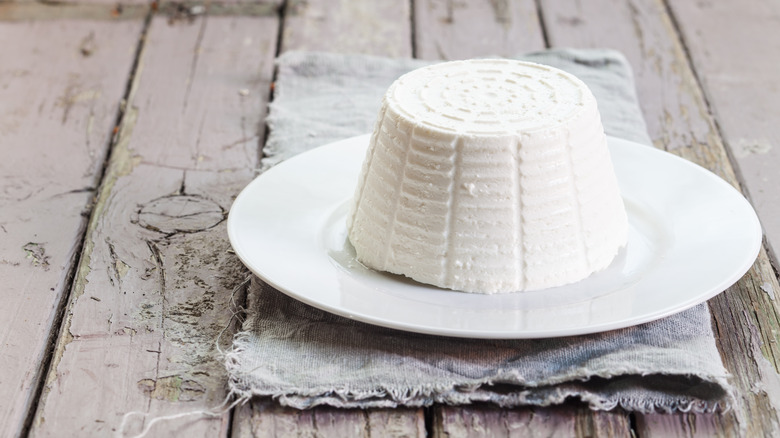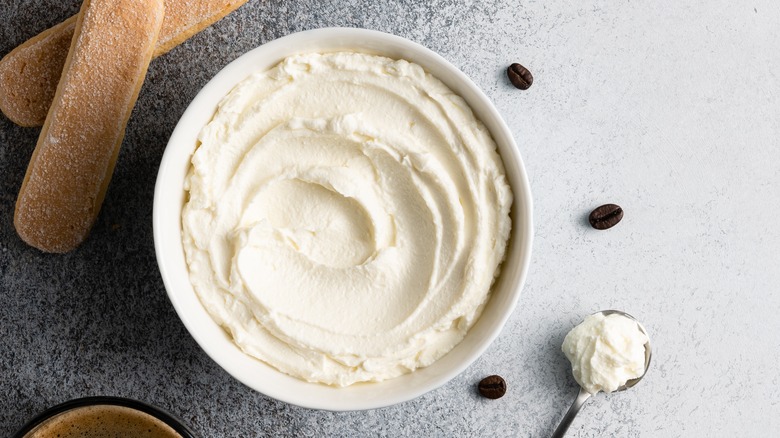How Long Ricotta Cheese Is Good For After Opening
Some cheeses last longer than others. Take parmesan, gouda, Swiss, and cheddar, for instance — these can last for up to four weeks in the refrigerator, even after they are opened. Sadly, ricotta does not fall anywhere close to this range. Soft cheeses like ricotta have a higher water content than hard varieties like parmesan. This means that they spoil quicker, and ricotta for one will only last for three days to a week in the refrigerator once it's opened. However, this creamy fresh cheese can spoil much, much quicker if it isn't stored well.
The most important tip for storing ricotta — even when unopened — is to keep it at a constant temperature of 35 to 40 degrees Fahrenheit. That means ricotta should be placed in the most consistently chilly part of your refrigerator, where there is minimal temperature fluctuation, i.e. the very back of the bottom shelf. Don't be surprised if you find that your cheese has spoiled sooner than expected if you store it in the volatile fridge door, as this is a food storage mistake that you really should stop making. If the door isn't good for storing milk, it's not suitable for cheese, either.
Once you've opened your ricotta, transfer it to an airtight container and press some cling film against the top layer. The trick is to minimize the fresh cheese's exposure to air and moisture. And make sure to use clean utensils when scooping out the cheese — you don't want soiled cutlery introducing bacteria to the creamy ricotta.
You can freeze ricotta to extend its shelf life, but should you?
If a week seems like too little time to use up the cheese, you do have the option of popping ricotta in the freezer. This will extend its shelf life to about two months, if not longer. All you have to do is gently press the ricotta between paper towels to get rid of excess moisture, wrap it tightly in some cling film, and place it in an airtight container or a freezer-safe bag. However, there are some things that you should know before you freeze this cheese.
Remember the bit about ricotta having a high water content? Well, that's going to solidify into ice in the freezer. Ricotta is known for its soft, creamy, and slightly grainy texture. However, you'll find that the cheese is dry, crumbly, and grittier than usual after freezing, thanks to the moisture that has solidified into tiny crystals of ice — not exactly the texture you want in your deep-fried cannolis, now, do you?
You could still freeze the cheese if you must, but consider using it only in cooked dishes like a lasagna or a quiche, where its gritty texture will be less noticeable. Make sure to thaw the ricotta by transferring it to the refrigerator a few hours before you cook it. Never leave it at room temperature for longer than two hours, and always think twice before using frozen ricotta in uncooked dishes.


